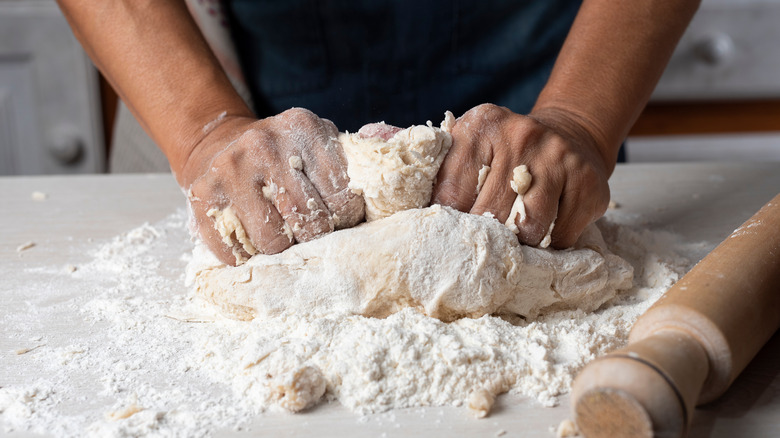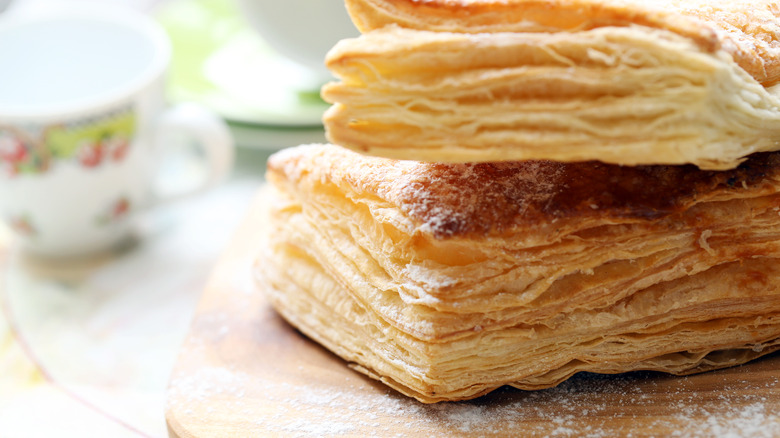Here's Why You Should Splurge For Pastry Flour When Baking
The world of baking can be a tad intimidating. Apart from all the science that goes into the baking time and the temperature of the oven, a lot depends on the ingredients. Use the right ingredient, and you'll have yourself a bake worthy of getting you a ticket onto the next season of "Masterchef." Use the wrong substitute, and it's going to be a sloppy disaster.
Flour, in particular, is an especially important ingredient as the structure of your bake pretty much depends on it. However, choosing the right flour is easier said than done. There's whole wheat and all-purpose flour of course, but then there's the matter of bread flour, cake flour, and pastry flour. Not to mention the bleached and unbleached varieties available for each.
While you may be tempted to think that pastry flour on an ingredient list is just a "suggestion" and not a requirement, it's probably for the best to stick to the ingredient list. According to Food & Wine, the difference between all the types of flour lies in the protein count, aka gluten. You should be using flour depending on how much gluten your bake requires so when a recipe calls for pastry flour, chances are, your bake's structure depends on it.
Pastry flour can make or break a light and flaky dough
As mentioned, how much gluten a certain type of flour has depends on the protein count (via Baking Kneads). The higher the amount of protein, the more gluttonous the dough will be. A dough with a lot of gluten will generally be dense and tough. This is why most recipes will caution you against overworking the dough, as that will produce more gluten and result in an overly tough bake.
According to The Kitchn, bread flour has the highest amount of protein, which makes sense considering breads need lots of gluten for a thick and chewy texture. Cake flour, on the other hand, has the lowest amount of protein at 7-8%. Pastry flour stands somewhere in the middle and has a protein count of about 9%. When you're baking pastries like pie crusts, scones, puff pastries, and biscuits, you need the dough to be light and flaky. Pastry flour's protein content in such cases pretty much does the trick — no one likes a dense pie crust, after all.
While you can find pastry flour at most grocery stores (Bob's Red Mill and King Arthur's Flour both make it), you could also make do with a homemade substitute if you're in a pinch. Food & Wine suggests subbing pastry flour with half parts all-purpose flour and half parts cake flour. The protein count of these are on the opposite ends of the spectrum, so when you mix them together, you'll find the sweet spot for a nice and flaky dough.

